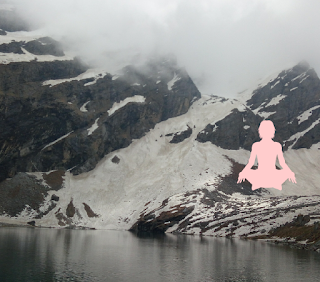Most Common Monsoon Diseases | skin issues | Prevention| How Yoga can help you
Protect yourself from Common monsoon
diseases
Monsoon brings relief from the scorching
heat in June; the flora sprout out quickly brings greenery everywhere. Monsoon
is also an impeccable environmental for the growth of various viruses and
bacteria (the micro-organism to reproduce and multiply in the hot and wet
weather) giving rise to air-water borne diseases such as malaria, dengue,
typhoid, hepatitis-A and chikungunya. All of these diseases are known as monsoon
diseases. These monsoon diseases come as immunity is reduced during this time
by fever taking hold of one’s body, which is a common occurrence during
monsoon. Cold and flu are the most common form of viral infection.
Humidity and moisture during monsoon can
lead to many health issues
Monsoon may be welcome after the extreme
heat but, the one fact is that it leads to many skin problems like rashes,
ringworm, pimples, and eczema and are more susceptible to infections
consequences as the variation in temperature and exposure to increase humidity.
Our skin naturally has several tiny micro-organisms. The local skin temperature
and environmental humidity are best conducive for the growth of such
micro-organisms; and, are higher risk of infection in those people who are
already suffering from auto-immune diseases when the humidity rises. Skincare
is essential in monsoon as during this season; clothes and shoes often get wet,
and wet clothes and shoes become a hotbed for allergies.
How to take care of your skin in the
rainy season
Always keep your skin allergies at bay
in the rainy season
The onset of any skin allergy, you can
use medicated soaps, anti-fungal and anti-bacterial creams, and if problems
seem to be serious, then visit a dermatologist.
Wear loose-fitting, comfortable and
cotton-clothes and keep all the clothes clean and hygienic.
Do not scratch the skin.
Intake a healthy diet.
Malaria spread through the bite of the female anopheles mosquito. Which proliferates in
stagnant water, is an infective disease caused by sporozoan parasites of which
to be transmitted through the bite of an infected Anopheles mosquito; marked by
paroxysms of chills and fever. Symptoms include - bouts of shivering, body
aches and sweating that repeat the cycles.
Dengue is a viral
infection caused by the bite of female Aedes Aegypti mosquito (the mosquito
that transmits yellow fever and dengue), and it breeds in intermittent rainfall
and high level-humidity. Dengue is an infectious disease of the tropics transmitted
by mosquitoes and characterized by rash and aching head and joints; and,
Symptoms include - loss of appetite, tiredness, severe fever, headache, muscle
pain and skin rashes.
Typhoid is a water-borne disease caused by poor sanitation and unhygienic food;
severe infection marked by intestinal inflammation and ulceration; caused by
Salmonella typhosa ingested with food or water. The fever comes and goes over a
long period, and this fluctuating fever contributes to severe abdominal pain,
diarrhoea, fatigue and headache.
Chikungunya caused by
mosquitoes breeding in stagnant water; is transmitted by the bite of
infected Aedes Albopictus (mosquito < dipterous
insect, two-winged insects) mosquitoes. Symptoms include - vomiting, rashes,
nausea and joint pains.
Hepatitis A virus is
commonly transmitted by consuming contaminated food and infection with
the Hepatitis A virus (HAV) and mainly affects the liver. Symptoms
include - fever, vomiting, abdominal pain and loss of appetite entirely.
Hepatitis A- an acute but benign form of viral hepatitis caused by an RNA virus
that does not persist in the blood serum and is usually transmitted by
ingesting food or drink that contaminated with faecal matter.
Cholera has caused by a
water-borne infection (bacteria-vibrio cholera), and an acute intestinal
infection caused by ingestion that has contaminated water or food. Symptoms
include- dehydration and diarrhoea.
Urinary tract infection (UTI) is an infection of any of the organs of the urinary tract that including
kidney, ureter, bladder and urethra. Symptoms include- a persistent urge to
urinate, burning sensation, passing a frequent small amount of urine,
foul-smelling and may be pain in abdomen, pelvic and perineal regions.
Prevention
Maintain hygiene and cleanliness
Have lots of liquids and clean water.
Yoga
Common monsoon diseases that can be
effectively prevented and cured by simple means of Yoga and Yoga provides the
following set of asanas, pranayama and meditation that can help you:
Shat-karma- Neti and Vamana (two or
three times a week).
Asanas – Skandh chalan, Janu Prasar,
Nadi chalan and Baal bachalan. Janushir asana, paschimottan asana, Sarvang
asana, sarp asana (bhujan), Hal asana and dhanur asana.



Very nice yoga asnas to prevent monsoon diseases
ReplyDeleteThank you so much for your great information. It will be very helpful for me .Yoga help in both Physical Health and Mental Health.Yoga is the natural way to stay happy, healthy and stress free. It is the best home exercises you can do around the house.If you want to boost your product then hire our https://neumeestore.com/ which helps you.
ReplyDeleteThanks for sharing Good Information
ReplyDeleteMOBECO
Very nice yoga asnas to prevent monsoon diseases.
ReplyDeleteBusiness Valuation Advisory Services
Legal Representation
Corporate Finance Specialists
Business Valuation Certification and Training Center
I came through this blog and found it helpful for me. There is a blog about handling situations and you will grab some usesful knowledge. how to succeed in a difficult situation
ReplyDeleteGood information
ReplyDelete